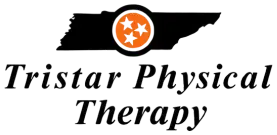Table of Contents
TMJ Disorders: Signs, Symptoms, and Treatments
TMJ, or temporomandibular joint disorder, is a condition that affects the hinge connecting the upper and lower jaw. This complex joint system, made up of muscles, ligaments, discs, and bones, allows for smooth movement of the jaw in different directions. However, any problem that disrupts this system can cause TMJ, leading to various signs and symptoms.
If you’re experiencing jaw pain or discomfort, it’s essential to understand the signs, symptoms, and possible treatments for TMJ disorder. In this article, we’ll cover everything you need to know about TMJ disorders, from common symptoms to effective treatments.
Signs and Symptoms of TMJ Disorders
TMJ disorders can manifest in different ways, making it challenging to diagnose the condition accurately. Some people may only experience mild symptoms, while others may have severe pain or discomfort. Here are some of the most common signs and symptoms of TMJ disorders:
- Headaches that mimic migraines
- Earaches
- Pain and pressure behind the eyes
- Clicking or popping sound when opening or closing your mouth
- Pain or tenderness in the jaw muscles
- Lockjaw or difficulty opening and closing the mouth
- Sore or stiff jaw muscles
- Changes in the way the upper and lower teeth fit together
If you’re experiencing one or more of these symptoms, it’s essential to consult a dentist who can diagnose the cause of your pain or discomfort.
Diagnosing TMJ Disorders
The first step in diagnosing TMJ disorder is to undergo a thorough medical and dental examination. Your dentist will review your symptoms and medical history to determine if you have TMJ or another dental condition causing your pain.
They may also take X-rays or use other imaging tests to examine the jaw joint and surrounding tissues. Your dentist may refer you to an oral and maxillofacial specialist or another healthcare provider if they suspect your condition requires further evaluation or treatment.
Common TMJ Disorder Treatments
If you’re diagnosed with TMJ disorder, your dentist or healthcare provider may recommend one or more of the following treatments:
- Applying Moist Heat or Taking Medication
You may be able to reduce muscle spasm and pain by applying moist heat to the affected area or taking over-the-counter pain-relievers, such as aspirin or anti-inflammatory drugs. Muscle relaxants may also help relieve pain and discomfort associated with TMJ disorders.
- Wearing an Appliance
Wearing a bite plate or splint can help reduce the harmful effects of clenching and grinding. Custom-made to fit your mouth, the appliance slips over the upper teeth and prevents them from grinding against the lower teeth. This treatment can help alleviate TMJ symptoms and prevent further damage to the teeth and jaw joint.
- Learning Relaxation Techniques
Relaxation techniques, such as deep breathing, meditation, and yoga, can help control muscle tension in the jaw and reduce stress levels. Your dentist may suggest that you seek counseling or training to learn how to eliminate stress and tension effectively.
- Jaw Joint Surgery
In severe cases where other treatments have failed, jaw joint surgery may be recommended. This procedure involves repairing or replacing damaged tissue in the jaw joint to improve movement and function.
TMJ Disorder Prevention Tips
While there is no guaranteed way to prevent TMJ disorders, there are several habits you can adopt to reduce your risk of developing the condition. Here are some prevention tips to keep in mind:
- Avoid chewing on hard or sticky foods, which can damage the teeth and jaw joint
- Maintain good posture and avoid clenching or grinding the teeth
- Practice stress-reduction techniques, such as meditation and yoga
- Seek prompt treatment for dental problems, such as teeth grinding or misalignment
- Consider a consult with a physical or occupational therapist for additional exercises, stretches, and techniques for managing TMJ
Conclusion
TMJ disorders are a common condition that affects millions of people worldwide. While the exact cause of TMJ is often unknown, understanding the signs, symptoms, and potential treatments can help you manage your pain and improve your dental health.
If you’re experiencing jaw pain or discomfort, it’s best to consult a dentist who can diagnose the root cause of your symptoms. Your dentist can recommend the most effective treatments for your TMJ disorder, including medications, appliances, relaxation techniques, and even surgery in severe cases.
By adopting healthy habits, seeking prompt dental care, and managing stress levels, you can reduce your risk of developing TMJ disorders and improve your quality of life. If you need professional dental or medical treatment for TMJ, consult with a qualified healthcare provider or visit reputable online resources like https://www.tristarpt.com for additional information and support.

